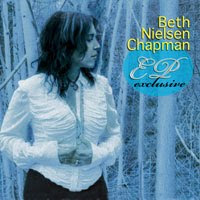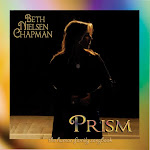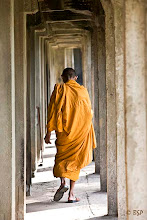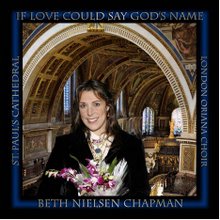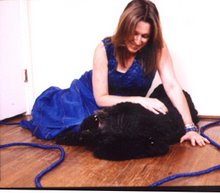A FolkWax Review Spotlight
Beth Nielsen Chapman's
Prism: The Human Family Songbook

FolkWax Rating: 9
By Arthur Wood
Beth Nielsen Chapman's
Prism: The Human Family Songbook
Released on her own label and sub-titled "The Human Family Songbook," Beth Nielsen Chapman has been labouring on this two-CD project since 1998. The Tibetan chant, "Hymn To Tara," which appears on Disc Two was recorded that year and amounts to the spark that 'lit this particular fire.' Let's step back a little however and look at this musician's recent audio/visual output. While Look [2005], the CD that immediately preceded Prism, was a secular work, prior to that Chapman, raised in a Catholic household, gave us Hymns, a collection of centuries-old religious songs mostly sung in Latin. The liner of that 2004 release included the footnote, "This material is from a forthcoming double CD of world hymns." That said none of the eleven tracks that appeared on Hymns resurface here. In more recent times Chapman married sound and vision with her DVD release If Love Could Say God's Name [2007]. Filmed in St. Paul's Cathedral in London, four of the dozen (mostly religious) songs Chapman performed on that occasion reappear on Prism.
Given the foregoing insights, Prism has certainly not arrived like some unexpected bolt from the blue. The collection's title is rather clever since it infers completeness. Direct a light source at a (usually triangular) prism and it will refract the spectral colours. The skin that man is attired in similarly bears a rich spectrum of hues. Chapman has been a Nashville-based writer since 1985 and prior to her rise to fame as a solo artist was a composer of a string of Country music chart hits for other artists. Wearing her solo singer-songwriter hat, Beth Nielsen Chapman performs material that weds Pop, Folk, and Country influences. On Prism she has cast those previous associations aside and embraced a wide-spectrum of musical genres, and for that matter languages. More about the latter later...
The eleven songs on Disc One are mostly performed in English and Chapman had a hand in co-writing five of them, plus two more on her own. I deliberately used the word "mostly" in the previous sentence since the rhythmically infectious opening cut, "God Is In (Goddess In)," embraces a few foreign phases, while the composer credit raises the question, "How many musicians does it take to co-write a song?" Based on a composition by percussionist/performer Billy Jonas, street poet Chris Chandler, and associate Laura Mahr, Chapman and her long-time collaborator Annie Roboff edited the original lyric and added a bridge. The lyric to "My Religion (Sweet Love)," penned by Chapman and poet Atoaji Radellant is a freeform affair that references (by name) numerous world faiths while stylistically could be categorised as Hip Hop Jazz.
When it comes to Chapman's compositions, I greatly prefer those that she composes on her own. In that regard, almost two decades on, "Emily" and "Years" from her 1990 self-titled sophomore recording (in 1980 Capitol Records issued Chapman's solo debut Hearing It First) still give me chills. Chapman's piano-led "Prayers Of An Atheist" and the Disc One closer "This Life That's Lent To You" are top drawer efforts in that vein, and I'd even hazard a guess that Chapman's research into Native American beliefs inspired the latter lyric.
If I had to pick a Chapman co-writer that I admire, it would be Texan Kimmie Rhodes (as a songwriter Rhodes has also collaborated extensively with Gary Nicholson) and their "Shine All Your Light" previously appeared on Rhodes' Rich From The Journey [2000]. Rhodes' recording of her inspirational Blaze Foley tribute "Our Father's Face," on which, uncredited, Chapman performed a verse, possesses a similar heartfelt spirituality to "Shine All Your Light." As for Nashville-based hit songwriting scribes whose work is on display here, Chapman co-wrote the up-tempo percussive "That Mystery" with Mark Germino and Don Henry penned "Beautiful Fool" (and in the process succeeded in conjuring realistic images of troubled late 1960s America with mention of Martin Luther King, Jr. and the iconic Walts (Disney and Cronkite)). Gary Nicholson's "Choose Love" is a beautiful paean that captures the pain and joy of our earthbound existence (the lyric to Chapman's and Nicholson's "Beyond The Blue," from the former's album Sand And Water [1996], possessed a distinctly spiritual edge).
As for living legends, Chapman co-wrote "Thank You My Lord," which praises the beauty of creation, with Hal David (go on with you, of course you remember Bacharach/David?). One of two older songs on Disc One, "For The Beauty Of The Earth," dates from 1864 and was composed by Englishman Folliot Sandford Pierpoint, while Katharine von Schlegel's lyric "Be Still My Soul" dates from the opening half of the eighteenth century and is teamed with a Jean Sibelius melody, written in 1899, taken from the composer's masterwork "Finlandia."
While the twenty-page liner booklet contains copious details regarding the session players and recording studios used (worldwide), barring the opening verses from "Prayer Of An Atheist," sadly the lyrics are not featured. That comes as a bit of stretch since most of the dozen songs on Disc Two are performed in foreign tongues. All is not lost however, as those lyrics including English translations are available on Chapman's website and we've provided the link: links to the song lyrics including their English translations are located on the web at www.bethnielsenchapman.com/lyrics/prismlyrics.html.
That said, Disc Two opens with the Joe Henry/John Jarvis co-write "The Flame," Henry being a past songwriting collaborator of Chapman's. Given the task of proficiently performing in a foreign tongue, the end result is a testament to the care that Chapman has taken in constructing and completing this work. "Shalom Alecheim," a traditional Hebrew song, "Masibulele Ku Jesu," and the Negro spiritual "Pilgrim Of Sorrow" appeared on the aforementioned DVD.
Elsewhere on Disc Two Chapman performs an arrangement of the traditional "Yemaya" (Cuban) and there's the chants "Hymn To Tara" (Tibetan), "Veni Creator Spiritus" (Latin Gregorian), while, considering my comment about "This Life That's Lent To You," the closing track, "Navajo Chant," on Disc Two pretty much mirrors Disc One. The song "Bhavani" is derived from a Sanskrit text, "In Yonder Valley" finds Chapman visit the world of the Shakers, "Durrow" is sung in Welsh, and "Bad-e Saba" is based on a text by fourteenth century Iranian poet/scholar Hafiz.
Released in the U.K. late last year, musically speaking, 2008 has finally kicked in Stateside with the appearance of Prism. All in all it's a heartfelt song collection with no sell-by date restriction and definitely a family affair considering the insights I've offered regarding the contributing writers. That said, does this world possess the will to pause long enough to truly listen and adopt a path of love, in the process casting aside hate, greed, and many other earthbound ills?
Arthur Wood is a founding editor of FolkWax. You may contact Arthur at folkwax@visnat.com.
++++++++++++++++
Bio
Beth Chapman Nielsen
Beth Nielsen Chapman
Beth has turned harsh life events into great musical art
Beth Nielsen Chapman was born in Harlingen, Texas, in 1956. Her father was is the US Air Force and the family subsequently lived in California, New England, and Germany. Robert Nielsen's final posting, in 1969, brought the family to Montgomery, Alabama, where he settled upon leaving the service. Beth spent her early years playing a neighbour's piano and borrowing her father's guitar. By her mid teens she was a member of a local Folk quartet,Home At Last. She subsequently joined another band calledHarvest, who mutated into Harmony. A songwriter from an early age, Harmony performed some of her originals, as well as covers. She stayed with the band for two years. In the late 1970s Beth met and married Ernest Chapman II, and the couple settled in Mobile, Alabama.
Recorded in Muscle Shoals and produced by Barry Beckett, Beth's debut solo album was released by Capitol Records in 1980. A sealed copy of the album, Hearing It First, was sold in February of 2002 on Ebay for $130.00. The Chapman's relocated to Nashville in 1985 and Beth worked initially for MTM. She scored her first Country #1 in 1988 when Tanya Tucker covered "Strong Enough To Bend," a co-write with Don Schlitz. Since then Beth has written or co-written four more #1 Country singles, a slew of Top 100 Country chart entries, as well as six AC Top 10 singles.
In 1989 Beth's second, self-titled solo album for Warner/Reprise appeared, featuring classic story songs such as "Years," "Emily," and "Life Holds On." Beth's 1993 album You Hold The Key, partly recorded in the U.K., proved to be a weaker collection. Concurrently her husband was battling with lymphoma. He passed away, aged 50, in August 1994. Following a few years silence, Beth's fourth solo album, Sand And Water, co-produced withRodney Crowell arrived during the summer of 1997. Lyrically, a number of the songs were spiritual revelations, particularly the title cut. In 1999 Reprise issued a collection titled Greatest Hits, which drew cuts from her three recordings for that label.
In August of the opening year of the new millennium, Beth was diagnosed as suffering from breast cancer. Her almost complete next studio album was shelved, as Nielsen began the stringent treatment regime. By the summer of 2001 she was able to work again. Her album titled Deeper Still was released in the States by Artemis Records in 2002. Look, an eleven-song collection of Chapman songs co-written with others, appeared in May 2004, and six months later Chapman self-released the twelve-track Hymns - the contents of which hardly requires elucidation. The self-released DVD If Love Could Say God's Name, filmed in St. Paul's Cathedral in London, acted as a precursor to Prisms. The two-CD, twenty-three track Prism was released in the U.K. in 2007 and in the States during early February the following year. Chapman had been working on this multi-faith religious song collection for a number of years and, as well as songs performed in English, she sings in Hebrew, Welsh, Navajo, Tibetan, and Zulu.
Discography: "Hearing It First" [1980]; "Beth Nielsen Chapman" [1990]; "You Hold the Key" [1993]; "Sand And Water" [1997]; "Greatest Hits" [1999]; "Deeper Still" [2002]; Look [2004]; Hymns[2004]; Prism [2007]
DVD: If Love Could Say God's Name [2007]
Arthur Wood





